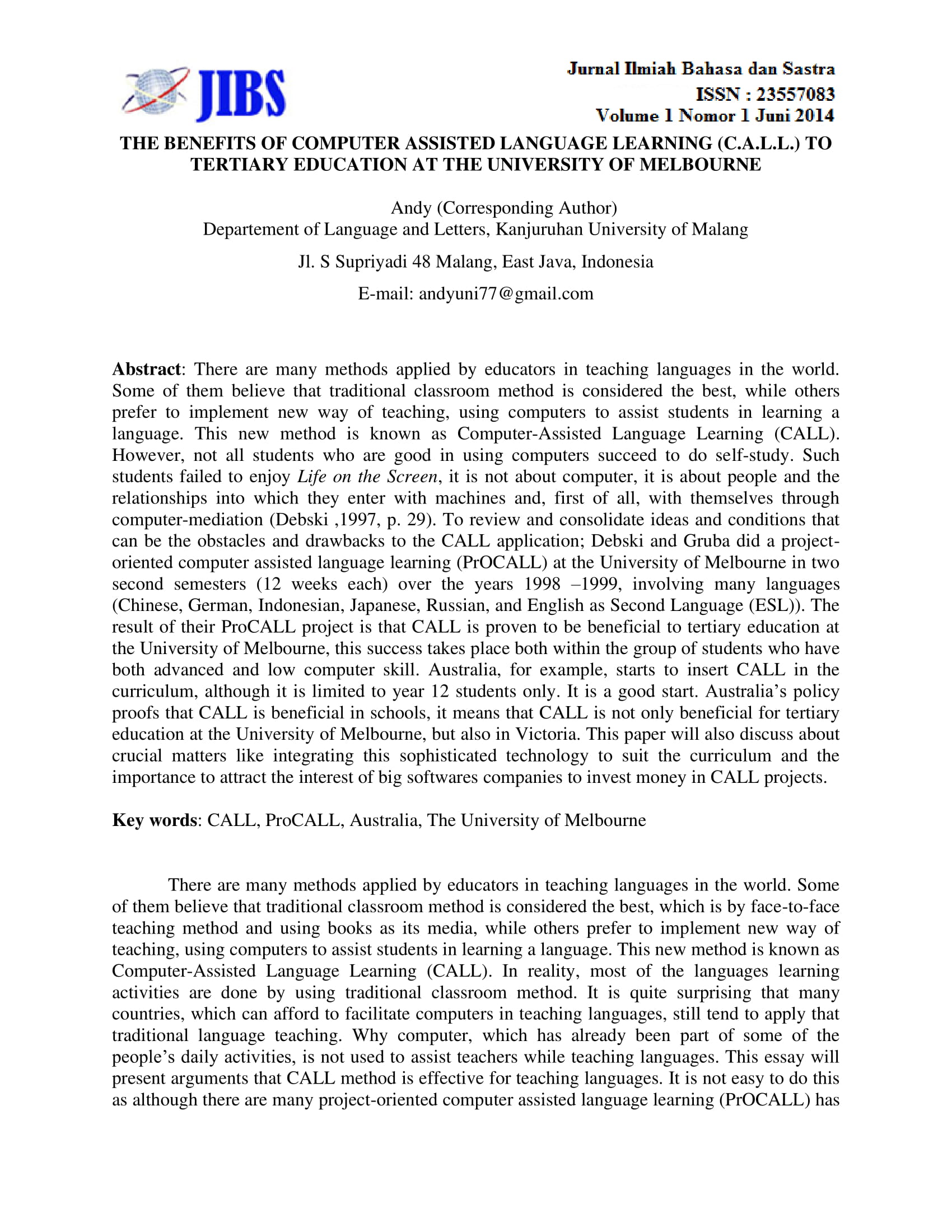THE BENEFITS OF COMPUTER ASSISTED LANGUAGE LEARNING (C.A.L.L.) TO TERTIARY EDUCATION AT THE UNIVERSITY OF MELBOURNE
Main Article Content
Abstract
Abstract: There are many methods applied by educators in teaching languages in the world. Some of them believe that traditional classroom method is considered the best, while others prefer to implement new way of teaching, using computers to assist students in learning a language. This new method is known as Computer-Assisted Language Learning (CALL). However, not all students who are good in using computers succeed to do self-study. Such students failed to enjoy Life on the Screen, it is not about computer, it is about people and the relationships into which they enter with machines and, first of all, with themselves through computer-mediation (Debski ,1997, p. 29). To review and consolidate ideas and conditions that can be the obstacles and drawbacks to the CALL application; Debski and Gruba did a project-oriented computer assisted language learning (PrOCALL) at the University of Melbourne in two second semesters (12 weeks each) over the years 1998 –1999, involving many languages (Chinese, German, Indonesian, Japanese, Russian, and English as Second Language (ESL)). The result of their ProCALL project is that CALL is proven to be beneficial to tertiary education at the University of Melbourne, this success takes place both within the group of students who have both advanced and low computer skill. Australia, for example, starts to insert CALL in the curriculum, although it is limited to year 12 students only. It is a good start. Australia’s policy proofs that CALL is beneficial in schools, it means that CALL is not only beneficial for tertiary education at the University of Melbourne, but also in Victoria. This paper will also discuss about crucial matters like integrating this sophisticated technology to suit the curriculum and the importance to attract the interest of big softwares companies to invest money in CALL projects.
Article Details
JIBS (Jurnal Ilmiah Bahasa dan Sastra) allows readers to read, download, copy, distribute, print, search, or link to the full texts of its articles and allow readers to use them for any other lawful purpose. The journal allows the author(s) to hold the copyright without restrictions. Finally, the journal allows the author(s) to retain publishing rights without restrictions

This work is licensed under a Creative Commons Attribution-ShareAlike 2.0 Generic License.

